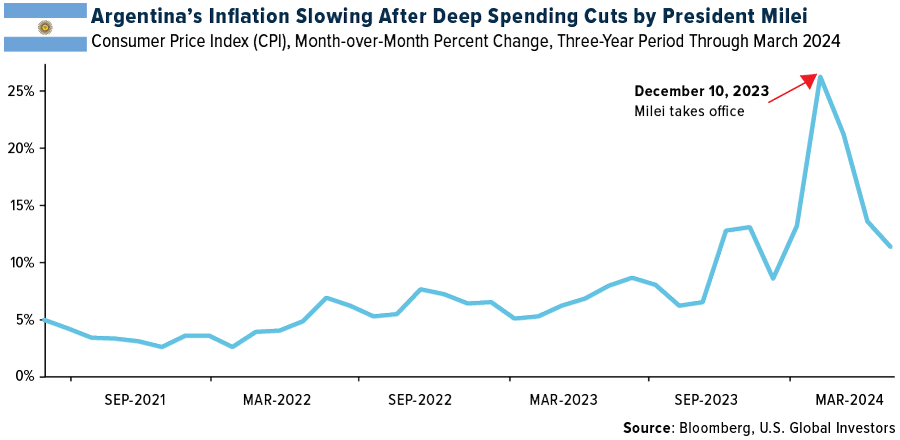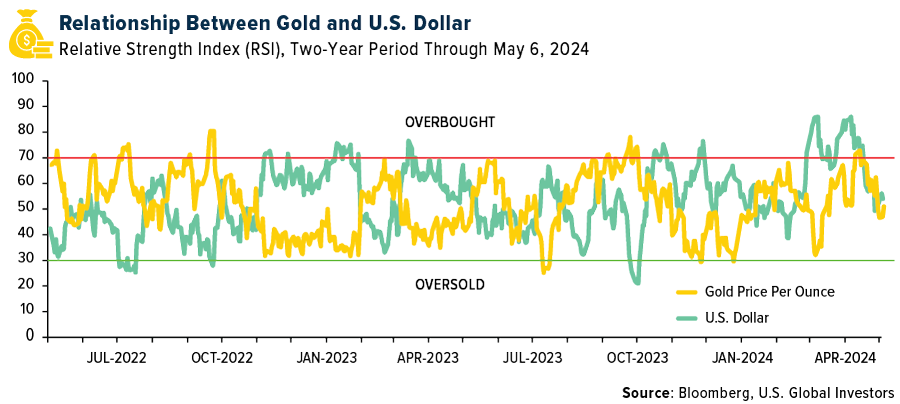As an advocate of sound fiscal policy and a strong believer in the power of free markets, I find Argentina's recent economic overhaul under President Javier Milei not just refreshing but essential in today’s world of bloated government spending.
Since taking office in December 2023, the libertarian leader has had to make some hard choices to stabilize Argentina's economy, which has long been beleaguered by high inflation and overspending. His “shock therapy” approach, deeply rooted in free market principles and fiscal restraint, could serve as a blueprint for other nations grappling with similar economic ailments, including the U.S.
Milei's strategy hinges on two critical pillars: fiscal reform and monetary stabilization. By addressing the country's chronic overspending, his administration achieved a noteworthy milestone—a budget surplus in the first quarter, the first since 2008.
Tackling Inflation
On the monetary front, Milei's government is working tirelessly to restore the balance sheet of Argentina's central bank. This includes reducing the large peso-denominated liabilities and increasing foreign assets.
In a bold move, Milei halved the number of ministries and eliminated 70,000 public sector jobs. He also suspended new public works contracts and removed various subsidies, further underscoring his commitment to reducing state intervention in the economy.
The early results of these efforts are promising. Argentina has seen a significant drop in the monthly inflation rate, from a staggering 25% in December to 11% in March. Such outcomes not only bolster confidence among citizens and investors alike but also demonstrate the efficacy of disciplined economic policies.

Argentina Tightens While U.S. Continues to Spend Freely
While Argentina shows signs of fiscal tightening, the U.S. paints a contrasting picture with its out-of-control spending. The national debt continues to balloon, with liabilities now representing over 120% of the country’s gross domestic product (GDP). The government now pays over $1 trillion a year just to service the interest on that debt. This bloated bureaucratic machine not only stifles economic freedom but also poses a significant risk to the financial security of future generations.
The consequences of such fiscal irresponsibility are becoming increasingly apparent. The U.S. dollar, while currently strong, faces long-term risks if the nation's debt trajectory continues unchecked. The average American family is increasingly pessimistic about achieving financial security, with only 35% of Americans believing their finances will improve in the coming year, according to a recent Acorns survey.
Bullish Bets and Cautious Analysis
High-profile endorsements have rolled in five months since Milei took office. Following a meeting with the Argentine president in Los Angeles, Tesla (NASDAQ:TSLA) CEO Elon Musk tweeted to his 182 million followers that he recommends investing in Argentina. Similarly, billionaire investor Stanley Druckenmiller, after listening to Milei's speech at Davos, described the president as the world's sole free market leader today and disclosed investments in five Argentine companies.
At the same time, caution has been advised by researchers at Alpine Macro, who contend that the recent surge in Argentine stocks and dollar-denominated bonds might be excessive. The S&P Merval, which measures Buenos Aires-listed stocks, has rallied 40% year-to-date, which is a “one-sigma overshoot above its long-term trend, a level that is hardly sustainable,” Alpine Macro emerging markets strategist Yan Wang writes in an investment brief this week.
Gold’s Timeless Appeal
Against this backdrop, gold retains its age-old allure as a safe haven. Historically, gold has served as a reliable store of value and a hedge against currency devaluation and inflation. As the U.S. dollar appreciates due to high interest rates, gold becomes more expensive for investors using other currencies, which can dampen demand and affect prices. Yet, the intrinsic value of gold remains undisputed, particularly as a diversifier.
Historically, gold and the U.S. dollar shared an inverse relationship, though this relationship has weakened in recent weeks, as you can see in the chart below. The 14-day relative strength index (RSI) shows that both assets have reverted to the mean in a rare alignment of price action.

As I shared with you back in January, gold appears to have a new driver besides the U.S. dollar and rates. Namely, emerging economies’ push to diversify away from the U.S. dollar by increasing their gold holdings is now the most important driver of the metal going forward.
As Bloomberg’s Mike McGlone recently put it, “A top reason [gold] has remained resilient is the deepest pockets on the planet—central banks—are accumulating at a breakneck pace.”
